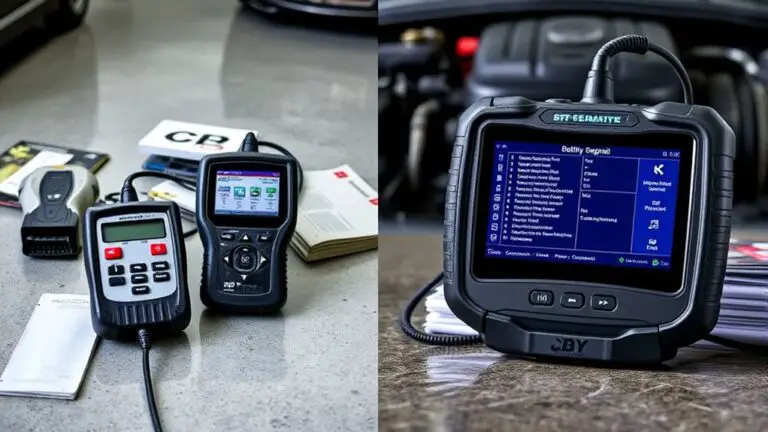Can AC Compressor Drain Battery? (Hidden Tips)
The AC compressor is an important component in your car’s air conditioning system that works by compressing the refrigerant gas and pumping it through the system to cool the interior of your car. However, many car owners wonder if the AC compressor can drain their car’s battery.
If you’re experiencing battery issues, it’s essential to know if the AC compressor is to blame. A dead battery can be caused by several factors, such as leaving your headlights on or a faulty alternator. However, a malfunctioning AC compressor can also cause your battery to drain.
In this article, we will explore whether the AC compressor can drain your car’s battery and the reasons why this might occur. We will also discuss how to diagnose and fix this issue. Understanding the cause of battery drain is crucial to ensure the longevity of your car’s electrical system and prevent inconvenient breakdowns.
What Is An AC Compressor?
An AC compressor is an essential component of a car’s air conditioning system. It works by compressing and circulating the refrigerant gas, which is responsible for cooling the air inside the car.
The compressor is driven by a belt connected to the engine’s crankshaft. When you turn on the AC, the compressor pump starts to compress the refrigerant gas from the low-pressure side of the system and pushes it to the high-pressure side of the system. The high-pressure gas is then sent to the condenser, where it is cooled and turned into a liquid. The liquid is then passed through the expansion valve, which reduces its pressure, and then sent to the evaporator. The cold refrigerant liquid flows through the evaporator, and air is blown over it, producing cool air that is blown into the car’s cabin.
Without the AC compressor, the air conditioning system would not work, and you would not be able to enjoy the cool air inside your car during hot weather.
What Is The Role Of An AC Compressor?
The primary role of an AC compressor is to compress the refrigerant gas, which is used to cool the air inside a car’s air conditioning system. The compressor is driven by a belt connected to the engine’s crankshaft, and it pumps the refrigerant gas from the low-pressure side of the AC system to the high-pressure side.
The compressor plays a critical role in the AC system’s performance by maintaining the correct pressure and flow of refrigerant gas throughout the system. The refrigerant gas must be at a high pressure to flow through the condenser, where it is cooled, and then sent to the evaporator, where it is used to cool the air blown into the car’s cabin.
The AC compressor is an essential component of the AC system, and without it, the air conditioning system would not function. Therefore, it’s essential to ensure that the compressor is in good condition and well-maintained to keep your car’s AC system working correctly. If you notice any issues with your car’s AC system, such as warm air blowing instead of cold air, it’s best to have it checked by a professional to diagnose the issue, which could potentially be related to the AC compressor.
AC Compressor Maintenance Tips
Proper maintenance of your car’s AC compressor is essential to ensure the longevity and optimal performance of your car’s air conditioning system. Here are some maintenance tips to keep your AC compressor in good condition:
Regularly check the refrigerant levels
Low refrigerant levels can put additional strain on the AC compressor, causing it to work harder than necessary, which can lead to damage. Therefore, it’s essential to regularly check the refrigerant levels and ensure they are at the correct level.
Keep the AC system clean
Dirt, debris, and dust can accumulate in the AC system, causing blockages that reduce airflow and put additional strain on the compressor. Regularly clean the AC system, including the evaporator and condenser, to prevent blockages.
Change the AC filter
The AC filter is responsible for removing dust, pollen, and other contaminants from the air entering the car. A dirty or clogged filter can restrict airflow, making the compressor work harder than necessary. Therefore, it’s important to regularly change the AC filter.
Inspect the compressor belt
The AC compressor is driven by a belt, which can wear or become damaged over time. Regularly inspect the belt and replace it if it’s worn or damaged.
Get regular AC system inspections
Regular inspections of the AC system can help identify potential issues with the compressor and other components before they become major problems.
What Are The Signs Of A Dying AC Compressor?
A dying AC compressor can cause a variety of issues in your car’s air conditioning system. Here are some signs that your AC compressor may be failing:
- Warm air blowing from the AC vents: If the AC compressor is not working correctly, it may not be able to compress the refrigerant gas properly, leading to warm air blowing from the AC vents.
- Loud noises: A failing AC compressor can make loud noises, such as grinding, squealing, or rattling, due to internal damage or a loose belt.
- Reduced airflow: A failing AC compressor can cause a reduction in airflow from the AC vents, making it harder for the system to cool the air in the cabin.
- AC system leaks: A damaged compressor can cause leaks in the AC system, which can result in the loss of refrigerant gas and reduce the effectiveness of the AC system.
- Unusual smells: A failing AC compressor can cause unusual smells, such as a burning odor or a musty smell, due to a refrigerant leak or mold growth.
- AC system cycling on and off: A damaged compressor can cause the AC system to cycle on and off frequently, making it harder to maintain a consistent temperature in the cabin.
If you notice any of these signs, it’s important to have your AC system inspected by a professional to diagnose the issue and prevent further damage to the AC compressor and other components.
Other Than A Stuck AC Compressor Clutch, What Else Can Drain Your Car Battery?
While a stuck AC compressor clutch can be a common cause of a drained car battery, there are several other factors that can contribute to battery drain. Here are some other potential culprits:
- Faulty alternator: A faulty alternator can cause your battery to drain because it’s not properly charging the battery while the engine is running.
- Parasitic draw: Parasitic draw occurs when an electrical component in your car continues to draw power from the battery, even when the car is turned off. This can be caused by a faulty switch, wiring issue, or other component.
- Interior lights left on: Leaving your interior lights on overnight can drain your battery quickly.
- Old battery: Over time, batteries can lose their ability to hold a charge, especially in extreme weather conditions.
- Electrical system issues: Electrical system issues, such as a short circuit or damaged wiring, can cause your battery to drain more quickly than normal.
If you’re experiencing battery drain, it’s important to have your car inspected by a professional to determine the root cause of the issue and prevent further damage to your car’s electrical system.


